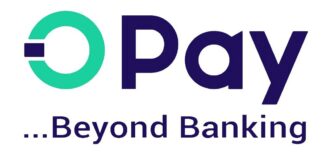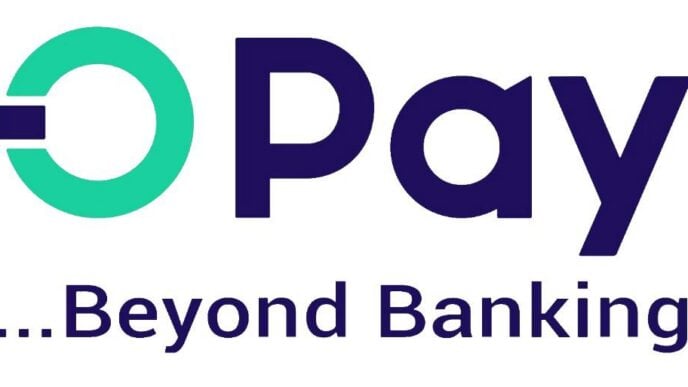Legal and law concept statue of Lady Justice on blurred background
BY ABEL JOHNSON
How best should Court Bailiffs and Officers of the Enforcement Units execute judgments, bearing in mind that wrongful executions against judgment debtors have significant impacts for investment in the country?
More worrisome should be how judgments are executed against banks and other financial institutions. Given that the globe has become a village for banks and all financial institutions, do Nigeria’s court bailiffs and enforcement officers consider the substantial financial losses such institutions suffer and how far such losses can deter investors who are concerned about the stability and predictability of the legal environment?
It is noteworthy that the reputation of the banking sector and the broader financial system can be severely damaged when judgments are wrongfully executed. Global investors rely on the integrity and reliability of a country’s financial institutions. Thus, if banks are seen as vulnerable to wrongful legal actions, it can erode trust and confidence in the entire financial system.
The aforementioned have brought to the fore the ignoble pattern of operation of the Enforcement Unit of the Federal High Court of the Federal Capital Territory (FCT) in recent times. The pattern has become troubling so much so that legal experts have become worried over the untoward practices the Court Bailiffs and Enforcement Unit officers have exhibited.
A critical case in point is the recent collusion between officers of the Enforcement Unit of the Federal High Court of FCT and Vision Kam Jay in illegal seizures against Ecobank in respect of Suit No. FJ/26/19- Motion No. M/5859 – Vision Kam Jay Investment Ltd. Vs. The President ECOWAS Commission.
In the instant case, the actions of the Enforcement Unit of the High Court have raised alarming concerns in relation to their compliance with legal principles and respect for judicial authority.
On January 10, 2025, the Bank’s staff were stupefied when Vision Kam Jay and over 40 officers from the Enforcement Unit of the Court executed a raid without issuing any prior demand for payment. They caused extensive damage to the Bank’s property and harassed employees, not until funds were debited from ECOWAS’ account to satisfy Vision Kam Jay’s demands.
A bird’s eye view of the matter
Vision Kam Jay Investment Limited (VKJ) obtained a judgment in the sum of N218,440,776.00 (Two Hundred and Eighteen Million, Four Hundred and Forty Thousand, Seven Hundred and Seventy-Six Naira) at the ECOWAS Court against the President of the Commission and ECOWAS Commission (ECOWAS). In June 2020, VKJ took steps to enforce this judgment by obtaining a Garnishee Order Nisi on the accounts of ECOWAS domiciled with banks in Nigeria. The Garnishee Order was made Absolute on 1 December 2020, and the High Court of the Federal Capital Territory (FCT) ordered the Bank to pay the judgment debt of N218,440,776.00 to VKJ.
In the process of complying with the Order Absolute, ECOWAS filed and served the Bank with a Notice of Appeal and a Motion for Stay of Execution against the Garnishee Order Absolute at the Court of Appeal – CA/A/1075/2020 – The President, ECOWAS Commission & Anor. V. Vision Kam Jay Investment Limited, which restrained the Bank from complying with the order to pay the judgment sum. The matter is currently under litigation before the Supreme Court.
During the pendency of ECOWAS’ application for Leave to Appeal and Motion for Stay of Execution of the Garnishee Order Absolute, VKJ, in collaboration with the Enforcement Unit, wrongfully obtained execution warrants and attempted to levy execution against the Bank on several occasions.
For instance, on 8 March, 2022 and 19 July, 2022, VKJ, along with the Enforcement Unit of FHC of FCT, police, and thugs, illegally and without authority raided the Wuse Zone 4, Abuja branch of the Bank. The invaders seized assets like vehicles, printers, generators, and counting machines; damaged properties, harassed staff and customers, and disrupted communication with branches outside Abuja. These actions violated the Sheriffs and Civil Process Act 1990 and Judgment Enforcement Rules, leading to significant disruption of the Bank’s activities.
In reaction to the unlawful execution, the Bank filed an action in Suit No. FCT/CV/2623/2022 – Ecobank Nigeria Limited V. Vision Kam Jay Investment Ltd & the Deputy-Sheriff of the High Court of the Federal Capital Territory, seeking orders of the court to invalidate the unlawful execution.
On 7 June 2023, the court gave judgment in the Bank’s favor, declaring the execution events as unlawful, setting them aside, and awarding N50,000,000 against VKJ in favor of the Bank, among other reliefs.
Also, the court ordered the return of the Bank’s assets carted away in the execution exercise and made an order for the maintenance of the status quo pending the decision of the Supreme Court on the applications by the judgment creditor for a stay of further execution of judgment on the matter.
VKJ, however, appealed against the judgment and applied for a stay of execution of the same, thus frustrating the release of the seized assets to the Bank.
In another incident sometime in 2023, upon the arrival of VKJ and the Enforcement Unit to levy execution against the Bank, they were shown the appeal processes served on the Bank by ECOWAS and were prevented from carrying out the unlawful execution. This was, however, after significant damage had been done to the Bank’s assets by the enforcement team.
We believe VKJ could not have carried out the threat but for their working hand-in-glove with the Enforcement Unit and the Nigerian Police. For instance, on 13 December 2024, there was a planned execution of the judgment against the Bank by VKJ. According to the source, they had obtained “a document” with which they could carry out this execution. The bank immediately alerted its lawyers, who allayed fears given the pendency of the restraining suit at the Supreme Court, and that a demand would be made on the Bank for the payment before any act of execution of judgment against the Bank.
Nonetheless, the Bank instructed its lawyers to write to the Chief Registrar of the High Court as well as the Enforcement Unit, citing both the pendency of ECOWAS’ appeal at the Supreme Court and the prevailing judgment on the previous execution. In the letters, both offices were advised to refrain from carrying out another illegal execution. Copies of the letters were duly served on VKJ’s counsel.
Despite the lawyers’ letters dated 16 December 2024 to the Deputy Chief Registrar and the Enforcement Unit, the restraining case was struck out on 18 December 2024 and VKJ proceeded to levy the instant execution without first making a demand on the Bank as required by law and practice.
Without issuing any demand for payment of the judgment debt to the Bank, at about 2:40 pm on Friday, 10 January 2025, VKJ again visited the Bank’s Wuse 2 and Cadastral branches concurrently, with over 40 Enforcement Unit officers, several police officers, and thugs, armed with an execution warrant issued by the High Court of the Federal Capital Territory and a ruling of the Supreme Court dated 18 December 2024 striking out the application for leave to appeal filed by ECOWAS.
Without first giving the Bank the option of paying the money, they began to clear out the buildings, damaging windows, doors and AC units from the walls, taking out chairs, computers, molesting staff and customers and attaching staff vehicles to be carted away, and generally devastating the Bank’s property. They only stopped when the Bank debited the account of ECOWAS and credited VKJ.
Remarkably, despite the Bank’s compliance with the Order Absolute by releasing the funds, VKJ has threatened to continue to levy further execution against the Bank through the Enforcement Unit.
The implications of these wrongful executions extend beyond immediate financial losses by the Bank. Such actions threaten investor confidence and undermine the stability of Nigeria’s financial system. The actions of Vision Kam Jay and the Enforcement Unit not only disrupted banking operations but also created an atmosphere of legal uncertainty that deters foreign investment.
Considering these serious allegations, it is imperative to hold both the Enforcement Unit and the courts accountable for their roles in facilitating these unlawful actions. The misuse of judicial powers has inflicted significant harm on the Bank’s operations and reputation while undermining the principles of justice that should govern all legal proceedings.
We call for an immediate and thorough investigation into these matters. The Enforcement Unit’s officers must be sanctioned for their collusion with the judgment creditor (VKJ) and their blatant disregard for legal standards. This situation demands urgent attention to restore faith in Nigeria’s judiciary and ensure that justice prevails for all parties involved.
The implications of wrongful execution of judgment is significant for investment in the country. Besides, the illegal tactics can deter investors who are concerned about the stability and predictability of the legal environment.
Investors rely on the integrity and reliability of financial institutions. If a bank like Ecobank is so vulnerable to wrongful legal actions, it can erode trust and confidence in Nigeria’s financial system. This can lead to reduced foreign direct investment and hinder economic growth.
We are convinced that the use of an arm of the judiciary to perpetrate these wrongs, which have the potential to discourage foreign investments in the country, is quite worrisome and unconducive for the foreign investments that the Nigerian Government desires.
The actions of the Enforcement Unit and the Nigerian Police, at the behest of VKJ, have not only breached statutory and ethical standards but have also inflicted significant harm on the Bank’s operations and reputation.
Besides, this blatant abuse of power undermines the principles of justice and fairness that are the cornerstone of any legal system
Add a comment












